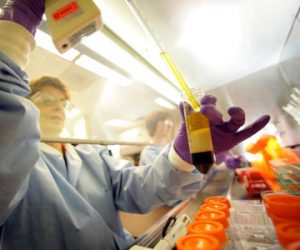Some people may never be faced with hazardous chemicals, while others come across them regularly. Even if you don’t work with chemicals every day, you should be aware of how to deal with them should you come across them – especially if they’re likely to be present in the workplace.
Know your chemicals
When working with chemicals, it is vitally important to know and understand the chemicals you are working with. You should know what they do, what effects they have on various materials and most importantly, how to handle them in the event of a spillage or contact with skin.
Some chemicals can cause emergency situations when mixed with other chemicals, so it is essential to know what you are working with. Chemicals can take the form of gases, liquids, vapours and dust and not all of these will be visible to the naked eye. Ensuring every chemical is stored correctly is therefore essential if you want to avoid unnecessary risks of spillages or leaks.
Emergency protocol
When spillage occurs do you evacuate the area and wait for specialized staff to safely clean up the spillage, or is it safe to clean up alone? Make sure that you know the location of any materials to clean up chemicals if this is the correct action and know how to alert others to the danger if not.
Dress for the task
Always remember to wear protective clothing when handling chemicals. Gloves, goggles and aprons are all there for your safety, so don’t neglect to wear them because it’s inconvenient or unstylish. Do not remove goggles or wipe your eyes during or after handling chemicals and make sure that chemicals are safely packed away and your hands are completely clean before touching your face or eyes again. Washing your hands immediately after handing chemicals is also recommended.
Keeping it clean
The area where the chemicals are used should be thoroughly washed, to prevent any chance of contamination. Special cleaners may be needed in areas where certain chemicals have been used, so exercise caution and make sure that you are aware of what is required.
Avoid ingestion
It sounds obvious, but food or drink should never be taken into areas where hazardous chemicals are used and this must always be remembered. Make sure that you wash your hands and body after using chemicals and before consuming food or drink.
Chemical accidents
Even after observing all of these vital safety methods, accidents can still occur and it is essential to know how to deal with them appropriately. If you find yourself injured or harmed due to chemicals in the workplace, it can be important to know your position. Speaking with personal injury attorneys can be the first step to gaining control of your situation and will help you seek compensation if and where appropriate.
